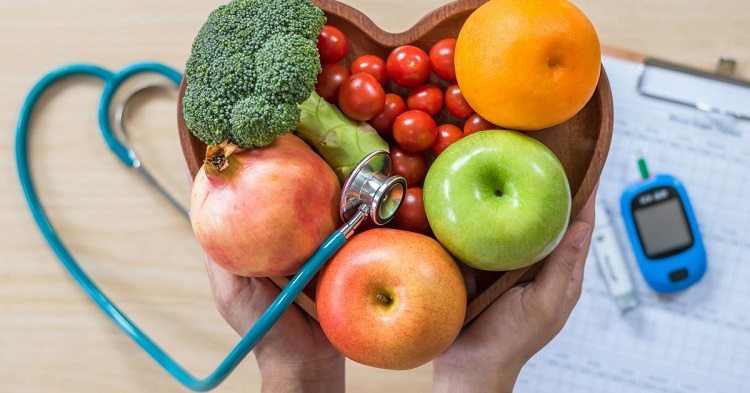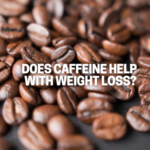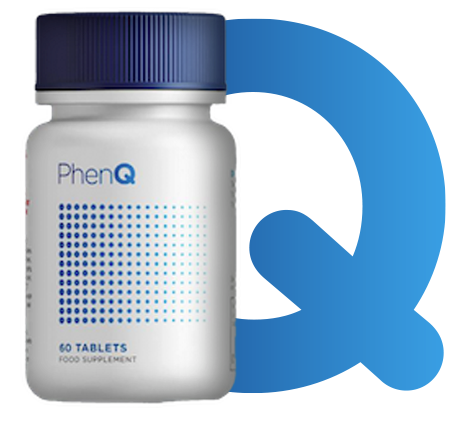Intermittent Fasting Enhance Your Metabolism

Intermittent fasting is an technique to aid, in weight loss. By limiting your eating hours to a timeframe you can boost your metabolism. Promote more efficient fat burning. To begin try fasting for 16 hours and consuming your meals within an 8 hour window. This will help your body enter a burning mode and shed those pounds.
What is Intermittent Fasting?
Intermittent fasting involves alternating between periods of fasting and eating. It has gained popularity in years due to its health benefits, particularly when it comes to shedding unwanted weight.
How Does Intermittent Fasting Aid in Fat Burning?
Intermittent fasting aids in fat burning by allowing your body to utilize stored fat as an energy source. During the fasting period insulin levels decrease, prompting the body to tap into its reserves for fuel. Over time this can lead to weight loss.
What Are the Various Types of Intermittent Fasting?
There are approaches to intermittent fasting, such, as the 16/8 method, the 5;2 diet and alternate day fasting. Each method follows a pattern of scheduled eating and abstinence.
What Are the Advantages of Intermittent Fasting?
Intermittent fasting has been proven to offer a range of health benefits, such, as promoting weight loss enhancing insulin sensitivity reducing inflammation and supporting repair through autophagy.
What should I consume during my eating window?
When it comes to your eating window prioritize consuming nutrient rich foods. Make sure to include amounts of fruits, vegetables, lean proteins and healthy fats in your meals. It’s advisable to steer of processed foods, sugary drinks and excessive snacking.
Begin with a 16 hour fasting period
Consume your meals within an 8 hour window
Opt for nutrient foods
Avoid processed foods and sugary beverages
Stay properly hydrated, throughout the day
High Intensity Interval Training (HIIT)
High Intensity Interval Training (HIIT) is an extremely effective method of burning fat through exercise. By alternating between bursts of physical activity and short recovery periods you can maximize calorie burn while also boosting your metabolism.
What exactly is High Intensity Interval Training (HIIT)?
High Intensity Interval Training (HIIT) is a type of exercise that involves engaging in bursts of intense activity followed by intervals of rest or low intensity exercise.
How Can High Intensity Interval Training (HIIT) Aid in Burning Fat?
HIIT workouts are incredibly effective when it comes to burning fat because they elevate your heart rate and metabolism leading to a calorie burn, during and after the workout. This can eventually result in weight loss over time.
What Are Some Examples of HIIT Workouts?
There are numerous HIIT workouts you can experiment with such as alternating between sprints jump rope intervals and bodyweight circuit training. The key is to challenge yourself by exerting effort during the intervals.
What Are the Advantages of HIIT?
HIIT has been proven to offer benefits, including increased burning capabilities improved cardiovascular fitness levels, enhanced insulin sensitivity and a reduction in abdominal fat.
How Frequently Should I Incorporate HIIT Workouts?
It is generally recommended to engage in HIIT workouts 2 3 times per week while allowing time for rest and recovery between sessions.
Remember to listen to your body’s signals and adjust the intensity and duration of your workouts as necessary.
Alternate between activity and periods of rest
Choose from a variety of available HIIT workout options
Experience heightened fat burning potential, alongside improved overall fitness levels
Here are some tips to consider for your fitness routine:
1. Incorporate high intensity interval training (HIIT) workouts into your schedule 2 3 times, per week. It’s important to listen to your body and adjust the intensity as needed.
2. Increasing your protein intake is crucial for both burning fat and preserving muscle mass. Protein plays a role in boosting metabolism reducing appetite and promoting muscle growth and repair.
3. Protein is particularly effective for burning because it requires energy to digest and metabolize compared to fats and carbohydrates. This can contribute to an increased metabolism and calorie burn.
4. The recommended daily protein intake varies depending on factors such as age, sex and activity level. As a guideline aim for consuming 0.8 1 gram of protein per pound of body weight.
5. There are high protein foods you can include in your diet such as meats, poultry, fish, eggs, dairy products, legumes and tofu. These foods not provide a source of protein but also deliver essential nutrients.
6. Adequate protein consumption can help preserve muscle mass during weight loss efforts.
Remember that these recommendations serve as guidelines; it’s always beneficial to consult with a healthcare professional or nutritionist, for advice based on your specific needs. This is crucial because muscle plays a role, in maintaining a metabolism and overall body composition.
Are Protein Supplements Necessary?
While it is possible to fulfill your protein requirements through foods protein supplements can be a convenient choice, especially for those who have higher protein needs or limited dietary options.
Increase protein intake to boost metabolism
Strive for consuming 0.8 1 gram of protein per pound of body weight
Include meats, fish, eggs and legumes in your diet
Maintain muscle mass by ensuring adequate protein consumption
Consider incorporating protein supplements if necessary
Get Sufficient Sleep
Obtaining quality sleep is crucial for weight loss and overall well being. Insufficient sleep can disrupt balance, increase appetite and impede fat burning.
How Does Sleep Impact Weight Loss?
Lack of sleep can lead to imbalances, an elevation in ghrelin (the hunger hormone) and a reduction in leptin (the satiety hormone). Consequently this may result in heightened appetite and cravings making it more challenging to adhere to an eating plan.
How Hours of Sleep Should I Aim for?
For adults it is recommended to aim for 7 9 hours of sleep, per night. However everyone’s individual needs may differ. It’s crucial to listen to your body and prioritize getting adequate sleep.
What Are Some Tips, for Enhancing Sleep Quality?
To improve the quality of your sleep it’s helpful to establish a sleep schedule create a bedtime routine limit exposure to electronic devices before bedtime and ensure you have a comfortable sleeping environment.
Can Insufficient Sleep Impact Fat Burning?
Indeed insufficient sleep can have an impact on burning.
When you don’t get sleep it can lead to decreased insulin sensitivity, increased levels of cortisol (a stress hormone that promotes storage) and a reduced metabolic rate.
What Health Benefits Does Sleep Offer?
Obtaining sufficient high quality sleep provides health benefits. These include improved function, enhanced immune system functioning reduced risk of diseases and better overall mood and mental well being.
Strive for 7 9 hours of quality sleep each night.
Establish a sleep schedule and bedtime routine.
Avoid using devices before going to bed.
Create a sleeping environment.
Enjoy the improvement in health and well being.
Boost Metabolism and Suppress Appetite
Keeping yourself hydrated is crucial, for both burning and overall health.
Staying hydrated can boost your metabolism, suppress appetite levels. Aid your body in burning calories.
How does water assist in the process of burning fat?
Water plays a role, in metabolic functions including the breakdown and utilization of stored fat.
By ensuring a water intake you can optimize these processes. Support the burning of fat.
What is the recommended amount of water one should drink?
The daily recommended intake of water varies depending on factors such as age, gender, activity level and climate.
As a guideline aim to consume at 8 cups (64 ounces) of water per day.
Can drinking water help curb appetite?
Indeed consuming water before meals can aid in suppressing appetite and reducing calorie intake.
It generates a sensation of fullness which ultimately results in decreased food consumption and potential weight loss.
Are there any advantages to staying well hydrated?
Staying properly hydrated offers benefits such as improved digestion, enhanced cognitive function, healthier skin and increased energy levels.
What are some tips for maintaining hydration levels?
To stay adequately hydrated throughout the day; carry a water bottle with you; set reminders to drink water regularly; add fruits or herbs to your water for added flavor; and include hydrating foods, like fruits and vegetables in your diet.
Remember to drink at 8 cups (64 ounces) of water each day. Water plays a role, in optimizing our bodys metabolic processes and promoting burning. If you drink water before meals it can actually help curb your appetite. In addition to these benefits staying hydrated can lead to digestion, better cognitive function and healthier skin. It’s always an idea to keep a water bottle handy. You can even add some flavor to make it more enjoyable.
Reducing stress is crucial when it comes to achieving weight loss goals. When we experience stress our cortisol levels tend to rise which can lead to storing fat hinder our ability to burn fat effectively and contribute to weight gain.
So how does stress impact weight loss? Well stress triggers the release of cortisol hormone which increases appetite and promotes storage in the abdominal area. This hormonal imbalance makes it harder for us to shed those pounds.
Managing stress effectively is key in order for your weight loss journey to be successful. There are techniques that are proven effective in reducing stress levels such, as engaging in exercise practicing meditation or deep breathing exercises trying out yoga sessions or journaling your thoughts and feelings. Spending time outdoors or indulging in hobbies and activities that bring you joy also helps alleviate stress.
Furthermore incorporating mindfulness into your lifestyle can also aid in weight loss efforts. Mindful eating is particularly beneficial as it involves paying attention while consuming food. Savoring each bite slowly than rushing through meals. By practicing mindfulness during meals you become more aware of what you eat which leads to making food choices while preventing overeating.
What Other Health Benefits Does Reducing Stress Provide?
Reducing stress offers a range of health benefits, such, as enhancing well being boosting the system improving sleep quality and lowering the risk of chronic diseases.
How Can I Integrate Stress Reduction into My Everyday Life?
Give priority to stress reduction by setting aside time for relaxation and self care activities.
Experiment with techniques to discover what works best for you and incorporate them as components of your daily routine.
Manage stress to support healthy weight loss
Engage in exercises, like yoga, meditation, deep breathing.
Practice eating to make food choices.
Experience improved well being and immune function.
Make stress reduction techniques a part of your routine.






















Add comment